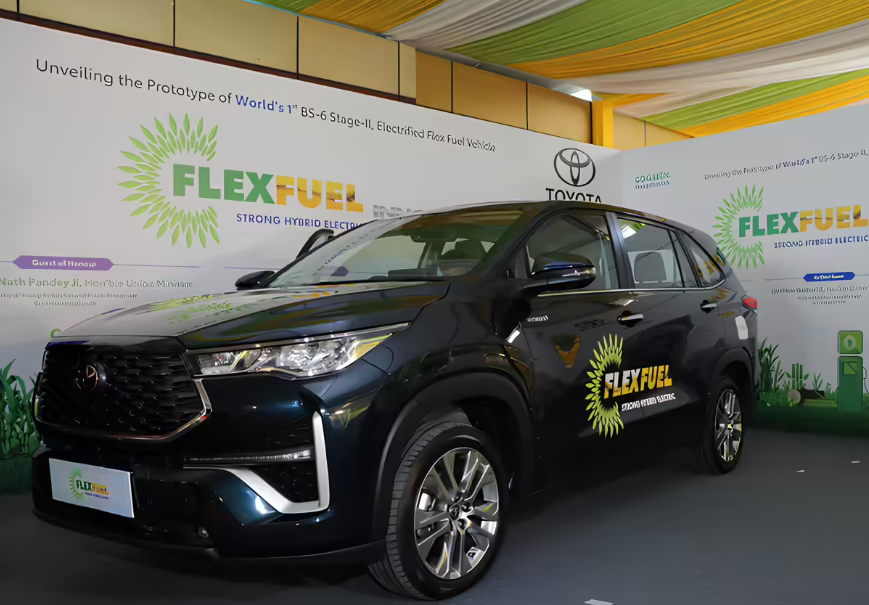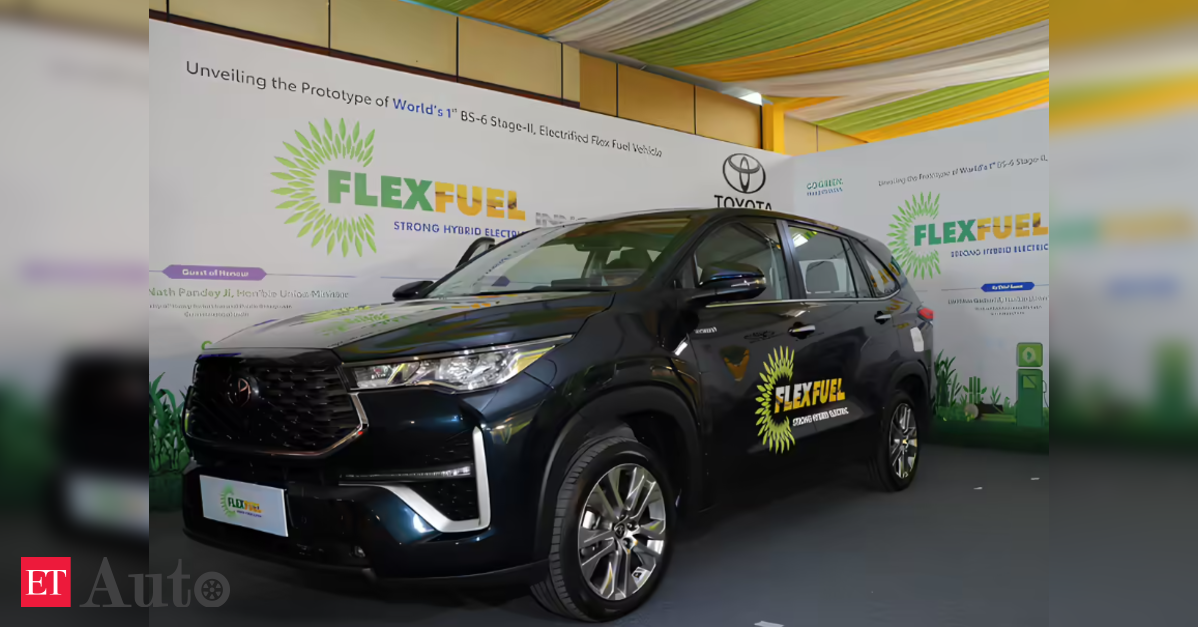 He added that India already has the ethanol production capacity to meet and even exceed current blending targets.
He added that India already has the ethanol production capacity to meet and even exceed current blending targets.Toyota Kirloskar Motor (TKM) expects flex-fuel hybrids and biofuels to play a crucial role in India’s clean mobility transition, alongside battery electric vehicles (BEVs), its Executive Vice-President, Vikram Gulati, told ETAuto in an exclusive interaction.
The company believes that a multi-technology approach is essential to achieve both carbon reduction and energy self-reliance.
“The entire capability to make a petrol vehicle into a flexible-fuel vehicle is indigenously developed. It delivers a direct and immediate impact. E20 alone can save nearly ₹50,000 crore annually in fuel costs while cutting a significant amount of carbon emissions,” said Gulati.
He added that India already has the ethanol production capacity to meet and even exceed current blending targets.
“Even with first-generation ethanol, there is an excess capacity of about 800 crore litres. For E20, we only need around 1,016 crore litres. The capacity exists today to move to 30 per cent or even 40 per cent blending if encouraged,” he said.
Citing Brazil’s example, where a 27 per cent ethanol blend has resulted in 45–50 per cent national average blending, Gulati said that there were no major technological or supply constraints to scaling up ethanol use in India.
New draft CAFE norms
He welcomed the government’s new draft Corporate Average Fuel Economy (CAFE) norms, calling them balanced and inclusive. “The government has taken a thoughtful approach, recognising that India must adopt multiple green energy pathways — electric, hybrid and biofuel-based — each backed by scientific benefit,” he said. He highlighted that the new framework differentiates between flex-fuel and strong hybrid flex-fuel vehicles, offering higher efficiency recognition for the latter. “A strong hybrid flex-fuel vehicle can offset ethanol’s lower energy density and actually improve overall mileage,” he added.
Though the industry might seek clarity on the process to validate carbon reduction claims from new technologies. “From a practical standpoint, it is challenging to demonstrate small incremental gains for every technology through testing,” he said.
Biofuels to complement electrification
Toyota’s long-term roadmap, Gulati said, focuses on delivering real-world benefits. “Globally, we aim for zero tailpipe carbon emissions by 2050. But since markets differ, we must align with each country’s energy mix and readiness. In India, biofuel-based mobility can deliver sustainability and energy self-reliance at scale and speed,” he said. The company, currently compliant with existing CAFE norms, is assessing the implications of the new draft for 2027–32. Gulati declined to share details on future product launches but said Toyota is “ready with all green technologies” including BEVs, hybrids, plug-in hybrids, and flex-fuel models.



